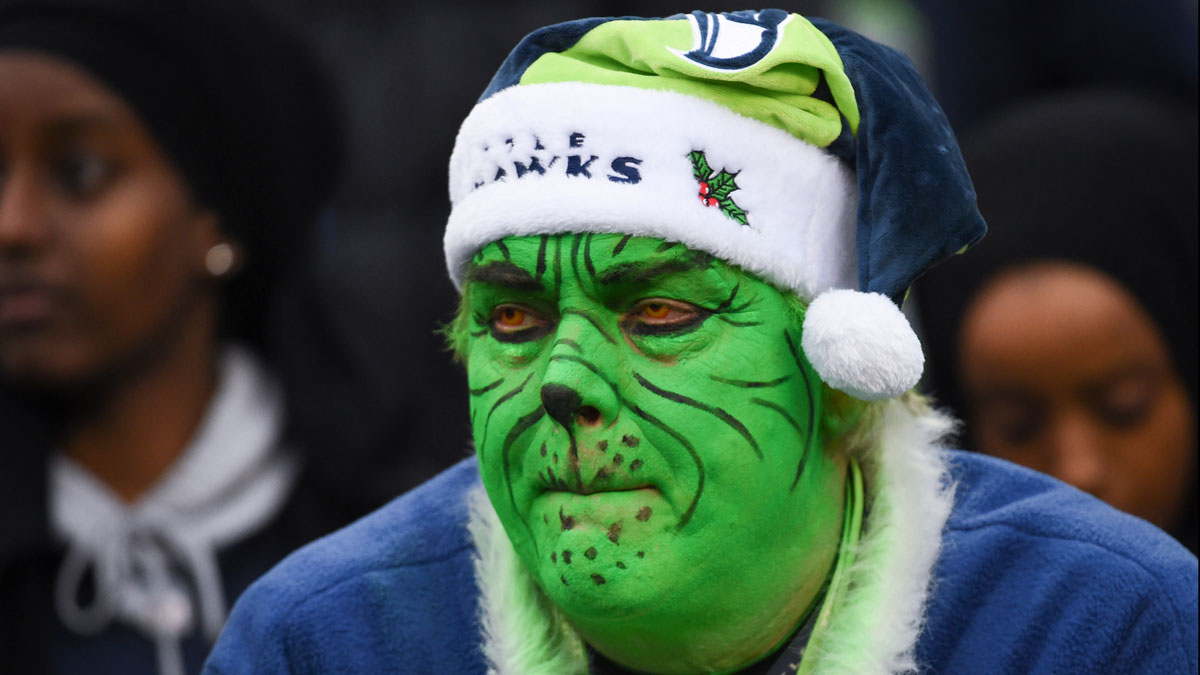CRITERION: Small value miracles could make Christmas merry for these retail stocks

Dollar Store Grinch thinks actually mince pies are okay. Picture: Getty Images
Ho Ho Ho … no? Economic indicators point to subdued Christmas shopping as household surpluses deplete and ratcheting interest rates and inflation wield their insidious influence at the tills.
According to the Westpac-Melbourne Institute’s monthly measure, a record 40 per cent of consumers are looking to trim Christmas spending. Unlike others, though, we wouldn’t go so far as to compare Reserve Bank governor Philip Lowe with Dr Seuss’ famous Yuletide-loathing Grinch.
Flagging consumer sentiment bodes poorly for the ASX discretionary retailers, but as is usually the case no sector should be viewed as an amorphous mass and experiences will vary.
One theory is that the retailers exposed to younger people will fare better, because these folk often live at home and are far removed from the travails of mortgages and energy bills.
Purveyors of small value items look better than placed than, say, Harvey Norman which is exposed to the vulnerable home renovation and improvement.
One example is the youth-oriented Lovisa (ASX:LOV), which specialises in cheaper ‘fast fashion’ jewellery and has built a formidable global presence of 629 stores (only 154 are in Australia).
Under a new CEO, Lovisa chalked up $458 million of sales in the 2021-’22 year, 20 per cent higher on a comparative basis (excluding new stores).
The top line turnover is also being felt on the bottom line, with net earnings climbing 116 per cent to $60 million.
Seven weeks into the new financial year, sales were up a comparative 21 per cent which shows it’s hard to pass up a set of $14 rose gold diamante pearl snowman earrings.
The aromatic Dusk Group (ASX:DSK) sells stocking-filler stuff such as lavender scented candles, mood rings, diffusers and bath bombs – and sales have survived a pandemic-era flicker.
Lockdowns meant that Dusk’s sales last year fell 7 per cent in the 2021-’22 year to $138 million (but still 37 per cent up on 2019-’20 turnover).
Last month CEO Peter King reported a 53 per cent sales increase for the first eight weeks of the current financial year, with trading “notably stronger” in August than July.
We’re not aware of any nexus between economic conditions and clean-shaven visages and manicured moustaches, but Shaver Shop (ASX:SSG) is surfing the growth of the $1 billion-a-year men’s grooming sector.
As management noted at Thursday’s AGM, no-one had heard of beard oils and balms three years ago.
The pandemic was kind to the Shaver Shop, which registered a 4 per cent uptick in sales in 2021-’22, to $223 million.
While we thought the lockdowns had turned us into a nation of slobs.
Shaver Shop’s $16.7 million net profit was only a razor-thin margin behind the previous year’s record surplus. Once again, the year is off to a good start with sales up 13 per cent year to date (and 30 per cent ahead of pre-pandemic levels).
For income hunters, retailers are attractive because they spit out good cash flow and pay decent dividends. With their profits leveraged to the value of turnover, inflation may be more a friend than foe.
Meanwhile, the pull-back in valuations make for attractive buying.
Having retreated 38 per cent in calendar 2022, Dusk Group shares are trading on earnings multiples of less than seven times and a yield of more than 10 per cent.
Shave Shop shares trade on a multiple of eight times and a 9 per cent yield.
We’ll hear more from the retailers at their AGMs, but on the evidence to date the Yuletide retail season could be more resilient than expected.
And who knows, maybe governor Lowe will bring back the toys and personally carve the roast beef.
This story does not constitute financial product advice. You should consider obtaining independent advice before making any financial decisions.
Related Topics
UNLOCK INSIGHTS
Discover the untold stories of emerging ASX stocks.
Daily news and expert analysis, it's free to subscribe.
By proceeding, you confirm you understand that we handle personal information in accordance with our Privacy Policy.








